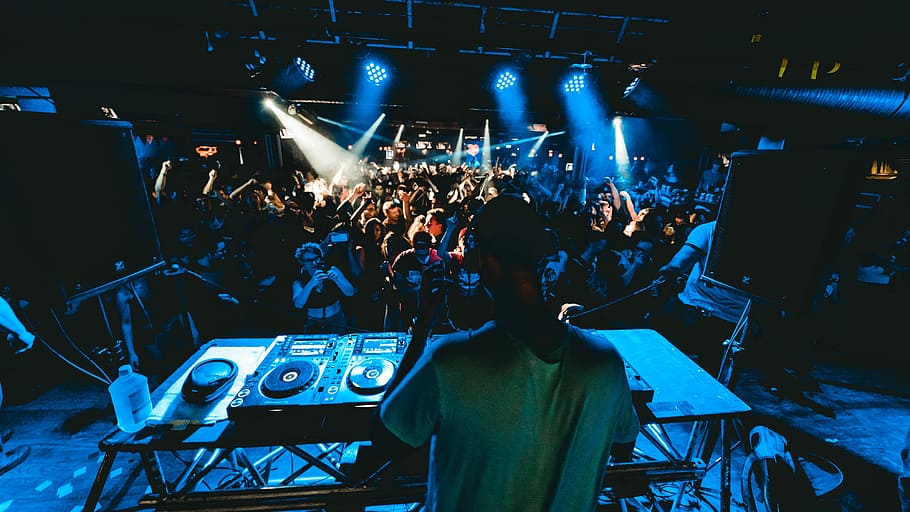Mastering the Mix: Essential Skills For Every DJ

Being a DJ is more than just playing music. It requires a unique set of skills
and talents to captivate audiences, create seamless transitions, and keep the
dancefloor alive. Whether it's a nightclub, wedding, or music festival, DJs are
the life of the party. In this article, we will explore the essential skills
that every DJ should master to become successful and revered entertainers.
Technical Proficiency
Before anything else, a DJ must have a strong command over their equipment. This includes turntables, controllers, mixers, and software. Understanding how to set up and troubleshoot audio systems is vital to ensuring a smooth performance. Familiarize yourself with the different types of DJ equipment available and learn how to use them effectively.
Beatmatching and Mixing
Beatmatching involves synchronizing the beats per minute (BPM) of two songs to create a seamless transition between them. Proper mixing enables DJs to smoothly blend tracks, maintain a consistent rhythm, and keep the crowd engaged without abrupt changes that could kill the energy on the dancefloor. Practice beatmatching by using your ears and experimenting with different tracks to find the perfect mix.
Reading the Crowd
An exceptional DJ knows how to read the audience and adapt their playlist accordingly. Being able to gauge the mood of the crowd and playing the right tracks at the right time ensures a memorable experience for everyone present. Pay attention to the dancefloor and observe how the crowd reacts to different genres and styles of music. Use this information to curate a setlist that keeps the energy high and the dancefloor packed.
Music Selection and Curation
Curating the perfect playlist is an art form. DJs must possess a vast knowledge of different music genres, eras, and styles to cater to diverse audiences. Creating a well-rounded and engaging setlist is essential to keep the dancefloor pumping. Explore various music platforms and sources to discover new tracks and expand your musical repertoire. Stay up to date with the latest trends in the music industry to ensure your playlist is fresh and exciting.
Mic Skills
A DJ's voice is a powerful tool. Mic skills involve being a charismatic host, engaging with the audience, and building a connection with them. DJs should master the art of announcements, shoutouts, and encouraging crowd participation without overshadowing the music. Practice speaking confidently and clearly on the microphone to enhance your stage presence and interact with the crowd effectively.
Song Requests
Handling song requests gracefully is crucial for maintaining a positive rapport with the audience. While not all requests can be fulfilled, a skilled DJ knows how to manage them respectfully and blend them into the set seamlessly if appropriate. Use your discretion to decide which requests align with the overall vibe of the event. Additionally, consider utilizing platforms like NoSongRequests.com Pro, which allows you to manage song requests efficiently and provide a seamless experience for both the DJ and the audience.
EQ and Sound Control
Understanding equalization (EQ) and sound control is essential for creating a balanced and dynamic mix. DJs must be adept at adjusting bass, treble, and midrange frequencies to ensure that the sound system delivers optimal audio quality. Experiment with different EQ settings to find the perfect balance for each track and venue.
Beat Juggling and Turntablism
Beat juggling and turntablism are advanced techniques that can elevate a DJ's performance to the next level. Skillfully manipulating the turntables, scratching, and incorporating creative techniques adds a unique flair to their sets. Practice these techniques regularly to develop your own style and showcase your creativity as a DJ.
Time Management
A DJ's set has a limited timeframe, and proper time management is crucial. Knowing when to build energy, drop a banger, or slow things down is essential for crafting an exciting journey for the audience. Plan your setlist in advance, considering the duration of the event and the desired flow of energy throughout the night. Practice transitioning smoothly between tracks to maintain a seamless and uninterrupted experience for the crowd.
Embracing New Technology
The DJing landscape is constantly evolving, with new technologies and software emerging regularly. Adapting to these advancements allows DJs to stay relevant and explore innovative ways to enhance their performances. Stay updated with the latest DJ equipment, software, and techniques to push the boundaries of your creativity and deliver unforgettable experiences to your audience.
In conclusion, being a skilled DJ goes beyond playing a collection of songs. It requires mastering various technical and interpersonal skills to entertain and engage the audience effectively. From beatmatching and mixing to reading the crowd and embracing new technology, each skill plays a crucial role in the DJ's ability to create a memorable and electrifying experience. By dedicating time and effort to perfecting these essential skills, DJs can undoubtedly conquer the stage and leave a lasting impression on every dancefloor they grace. Remember, being a DJ is a journey of continuous learning and growth, so never stop exploring and pushing your limits as an artist.
